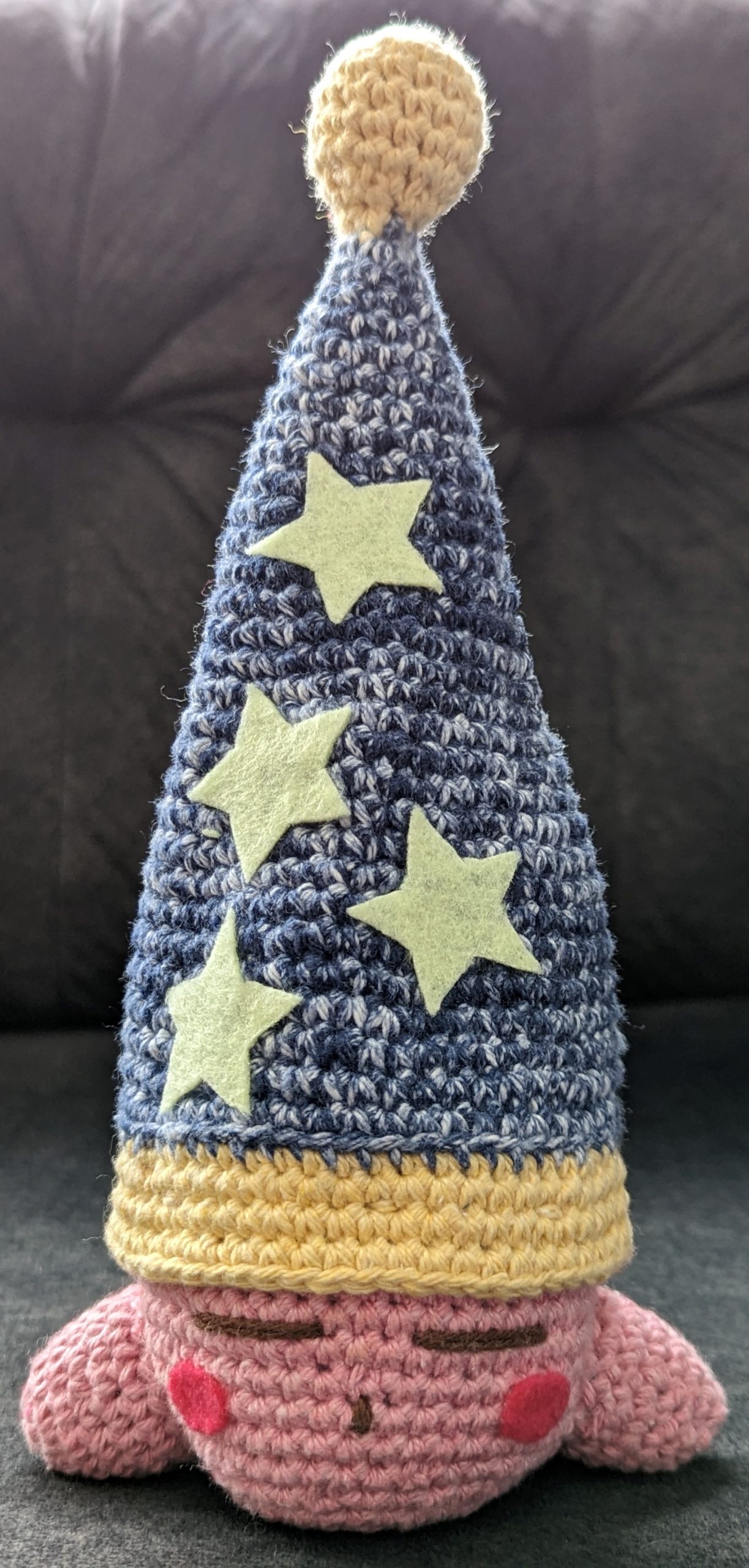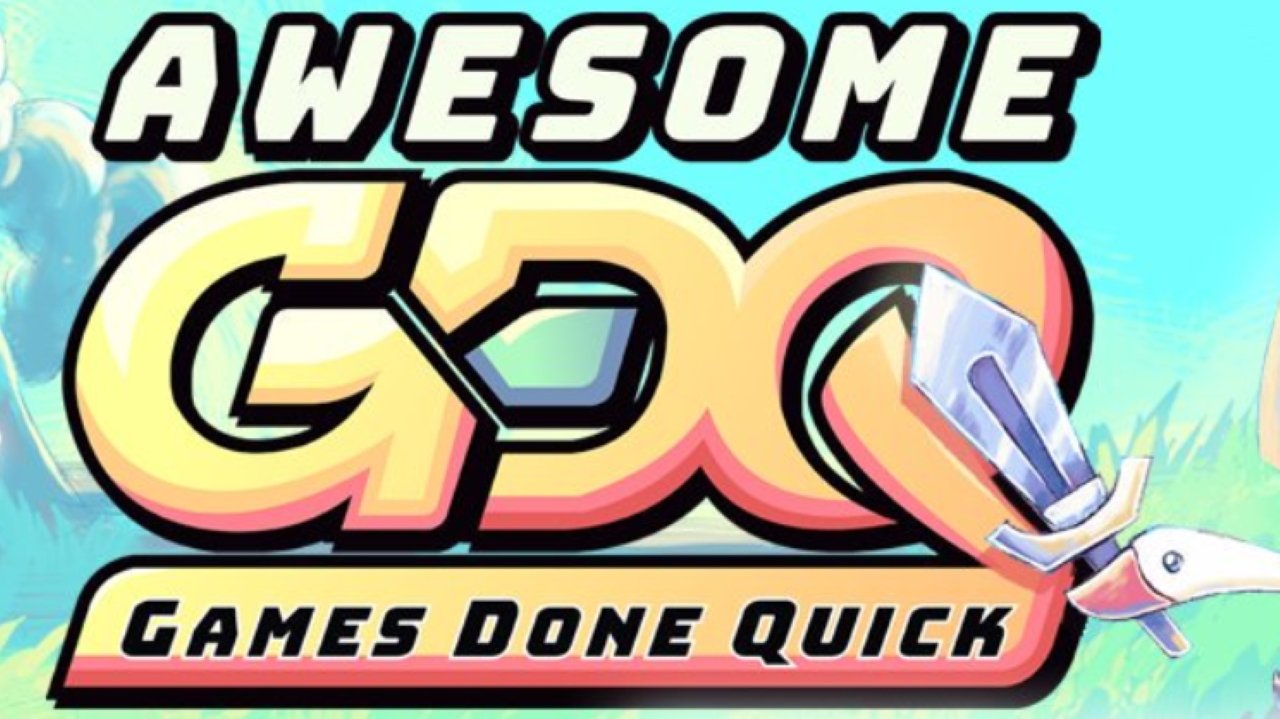
Ah, speedrunning: the niche subsection of the gaming community dedicated to beating their favorite games as fast as possible. This community is not new by any means, but it’s managed to gain a lot more popularity over the years. The speedrunning event Games Done Quick has played a pretty big part in this rise in popularity by making the complex sport more accessible to the general gaming community. This post will cover the finer details of this event here for anyone wanting to learn more about it and maybe even get involved.
Games Done Quick, often abbreviated as GDQ, was started all the way back in 2010. Two events are hosted every year: one during the summer (Summer Games Done Quick, or SGDQ) and one during the winter (Awesome Games Done Quick, or AGDQ). The names, of course, reflect the seasons they are held in: summer and awesome.
The event itself is a speedrunning marathon held mostly in-person and livestreamed on Twitch. It lasts for a little over a week, and during that time, speedrunners from all over the globe gather to show off their skills. As the event progresses, individual speedruns are uploaded onto Games Done Quick’s YouTube channel, creating a virtual treasure trove for gamers hunting down speedruns of their favorite games.

GDQ’s Fundraising: Common Donation Practices
The main draw of the event, other than watching people demolish the games we love in record time, is the charity aspect. During the course of the marathon, people from all over the world send in donations that go to charity, most commonly Doctors Without Borders and the Prevent Cancer Foundation. GDQ is currently the largest fundraising event globally for both of these two charities, having raised a whopping $45 million in total donations over the years.
People can send in little messages with their donations that have a chance to get read out loud during lulls in the speedrunners’ commentary. A lot of times, people will send in jokey messages related to the game or encouragements to the runner.
It’d be a bit boring if it was all just random donations, though. To spice things up, GDQ encourages speedrunners to set donation incentives. If a certain donation goal is met in time, runners will modify things about their speedrun. There are lots of options for donation incentives, like changing from normal to hard difficulty or changing the speedrunning category from any% (beating the game as fast as possible) to 100% (beating the game as fast as possible while doing everything and getting every collectible).
Sometimes incentives will be bid wars over the name for a character in-game. Other times, it might be spending a bit of extra time demonstrating some of the glitches used during the speedrun, or going out of their way to fight an optional boss. These incentives can be pretty extreme, too: one example from the criteria listed on the GDQ website is playing a section of the run blindfolded, which is no small feat!
But that’s not all! GDQ also accepts submissions of prizes relevant to the games in the event or to gaming in general. Many people submit handmade items, so there’s always a lot of unique prizes to be won. Anyone can enter into these sweepstakes online for a minimum donation amount depending on the prize, or enter for free by sending in a letter. The prizes are drawn in rounds, and people who donate $125 or more will automatically be entered into the drawing for the grand prize pool, containing some of the coolest items.
Some examples of prizes from this year’s SGDQ include paintings, stained glass, mouse pads, patches, pins, a neon sign, stickers, coasters, bags, and so, so many more. The creativity on display here is incredible. The size of the prize list from just one event is astounding: SGDQ 2023 amassed 252 prizes in total.



Games Done Quick’s Speedrun Criteria
With the popularity of the event, the staff at Games Done Quick needs a way to narrow down the submissions a bit. In order to get a chance to speedrun at GDQ, potential runners have to submit a video of themselves speedrunning to be judged by the GDQ staff. The criteria used to judge submissions are laid out on the GDQ website.
One of the most important things—and what makes the event so accessible to non-speedrunners—is the commentary during the run by the speedrunner or the people they brought with them. Games Done Quick’s team judges speedrunners’ commentary in their submission videos, prioritizing runs with informative, active, entertaining commentary that adds to the enjoyment of the game and helps present it to audiences who may be unfamiliar with it.
Good commentary alone does not always make for a good game for GDQ’s streams, however. Obviously, the speedrunner needs to be actually good at speedrunning, having a competitive time near the top of the leaderboards. The speedruns of the game need to be fairly consistent, since games where runs can be ruined by bad luck or mistakes aren’t going to work as well in a live setting where there’s no time to reset. And they try to keep it family-friendly, so no R-rated games here, unfortunately.
They also question the entertainment value of the game itself: how long is it? Is it entertaining throughout the whole run? Is the game nostalgic, or otherwise appealing to people? With longer speedruns, the Games Done Quick team encourages more donation incentives, since there’s more time to raise money toward them. This, too, adds to the entertainment value of a run—people want to see these interesting twists to their favorite games, and people love feeling like they’re a part of something, so naturally they enjoy donating for these things.
Of course, they’ll want to consider if the game has been in their marathons in the past. Did it perform well back then? Is it worth running again? And the particular speedrunner: have they been in a GDQ event in the past? How did they behave? If a runner has caused problems in the past, including dropping or not showing up for their runs, the staff is obviously not going to be too keen on welcoming them back in.
In-Person Info and Rules
As with any event, the in-person part of GDQ has to have rules. To attend the event, people have to pay a registration fee. A badge system is used during the event in order to keep track of people. Badges can be marked as part of a strike system for people who are breaking the rules. There are some very nice guidelines in there, such as not allowing kids under 5 years old (who probably wouldn’t get anything from the event anyway), requiring proof of vaccination, and requiring showering regularly and being asked to leave the marathon area if you smell (a very necessary rule in a space full of gamers).
The event itself is more than just the marathon room where the runs take place. There are two other rooms for gaming as well: one for attendees to play games casually, and another for speedrunners practicing for their runs. The staff is very clear on the need for the two to remain separate—I know that if I was practicing for a difficult task being shown to millions, I certainly wouldn’t want random people coming up and bothering me, so I’m sure this is greatly appreciated by the runners.
GDQ’s Event Staff
The majority of the people working at Games Done Quick events are volunteers. One benefit of volunteering is that you get a guaranteed badge, letting you attend the event without paying a registration fee. Unfortunately, you still have to pay for your own room and board. Workers must be over 18 years old, and can sign up for a variety of positions, including audio, check-in, camera operators, cleaning crew, photography, donation readers, and lots more.
For people who want to help without attending, there are also volunteer positions for chat moderation, moderators for the Games Done Quick social media pages, and host judges/host committee members, who help with volunteer auditions.
There are a few paid job positions with GDQ as well, but alas, most of the time they aren’t looking for new people to hire.
Final Thoughts
Games Done Quick has been a massively impactful semiannual speedrunning event, with their huge contributions to charity and great entertainment value that pair amazingly well together. The event has helped make speedrunning more popular and much more accessible to general audiences, all while donating to very important causes. Speedrunners get the opportunity to get more recognition and meet others who share their interests. Donation goals can lead to many interesting modifications to gameplay and drawings for amazing handmade prizes. A lot of thought goes into the quality and entertainment value of runs showcased during the marathon, and this quality is very apparent in the end result. GDQ introduced my dad and I into the world of speedrunning and continues to be a shared interest that we explore through watching GDQ runs on YouTube. I’m sure the same is true for many other fans around the globe.


Leave a Reply